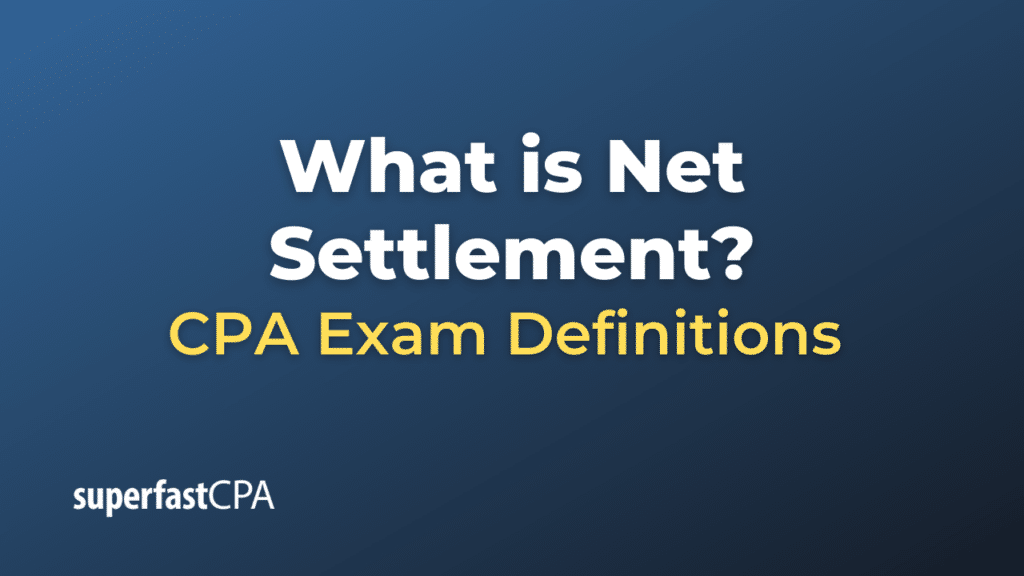Net Settlement
Net settlement refers to the process in financial markets where only the net differences of trades are settled at the end of the trading period, rather than each individual transaction. This method is used to streamline and simplify the process of settling many transactions, especially in highly active markets.
Let’s consider an example for clarity. Suppose an investor makes the following three trades in a day:
- Buys 100 shares of Company A for $10 per share.
- Sells 50 shares of Company A for $12 per share.
- Buys 30 shares of Company A for $11 per share.
In gross settlement, each of these transactions would be settled individually, leading to a lot of transactions.
However, in net settlement, the transactions are netted together:
- The investor’s net position in Company A at the end of the day is a purchase of 80 shares (100 bought – 50 sold + 30 bought).
- The cash difference of the transactions is also settled net. In this case, the investor spent $1,330 (100*$10 + 30*$11) and received $600 (50*$12), for a net cash payment of $730.
So, in net settlement, only these net positions are settled, reducing the number of transactions significantly. This system is used in many financial markets worldwide, including the stock and futures markets.
Example of Net Settlement
Let’s consider an example using three traders in a stock market who are trading shares of a hypothetical company, Company ABC.
- Trader X buys 100 shares of Company ABC from Trader Y.
- Trader Y buys 50 shares of Company ABC from Trader Z.
- Trader X sells 70 shares of Company ABC to Trader Z.
In a gross settlement system, each of these transactions would be settled individually, meaning money and shares would exchange hands three separate times.
In a net settlement system, however, these transactions would be “netted” together at the end of the trading period. Let’s see how this would work:
- Trader X has a net purchase of 30 shares (100 bought – 70 sold).
- Trader Y has a net sale of 50 shares (100 sold – 50 bought).
- Trader Z has a net purchase of 20 shares (70 bought – 50 sold).
Instead of three separate transactions, we end up with only two net transactions:
- Trader X needs to buy 30 shares, and Trader Y needs to sell 50 shares, so Trader Y sells 30 shares to Trader X.
- Trader Y still needs to sell 20 shares, and Trader Z wants to buy 20 shares, so Trader Y sells 20 shares to Trader Z.
This net settlement reduces the number of transactions, simplifies the settlement process, and reduces the overall risk and cost in the system. This is how many financial and securities markets operate.













